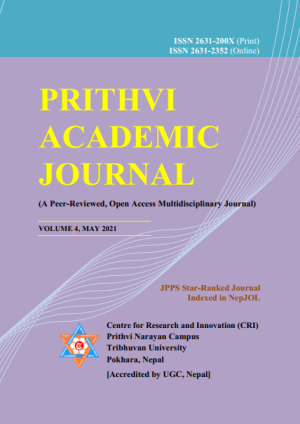The Role of Nutrition Counseling in Controlling the Non-Communicable Diseases among Nepali Women
DOI:
https://doi.org/10.3126/paj.v4i0.37053Keywords:
Counseling, lfestyle, food, Nutrition, non-communicable diseasesAbstract
The general perception of nutrition is that it is just the process of taking food. However, it represents food science that ultimately relates to human health. Unhealthy and imbalanced food and the modern lifestyle are contributing to non-communicable diseases (NCDs) in recent days. Hypertension, diabetes and cancer are some major NCDs across the world that have created challenges for human life. Annually, millions of people die due to the food related problems. The major objective of the study is to analyze the health status of non-communicable diseases among Nepali women. This study emphasizes the counseling and modification of diet that are crucial in controlling non-communicable illness. This study is based on the secondary data and review of literature. All these data were reviewed through journals, research articles, books, and the association’s dietary guidelines. The reports by WHO, Nepal Demographic Health Survey, American Heart Association, American Lung Association and National Institute of Diabetes are also reviewed. The experience of working in this field for a long time has also been utilized in analyzing the data. A number of NCDs is being increased globally and Nepal is no exception. The WHO report of 2018 reveals that NCDs are killing 41 million people yearly, equivalent to 71% of all death globally. Similarly, 15 million people die from it between 30 and 69 age groups, and 85% of these 'premature' deaths in low and middle-income countries. According to NDHS (2016), the prevalence of hypertension in women in Nepal is 17% of those aged 15 and above. Alter food habits, overweight and obesity as well as food practices during pregnancy, after delivery and daily intake of convenience fast food in Tiffin and snacks are some reasons to increase the NCDs. Nutrition counselling and awareness, dietary policy guidelines and an active role of diet specialist (dietician/nutritionist) will be the effective mitigation in controlling the NCDs number.




